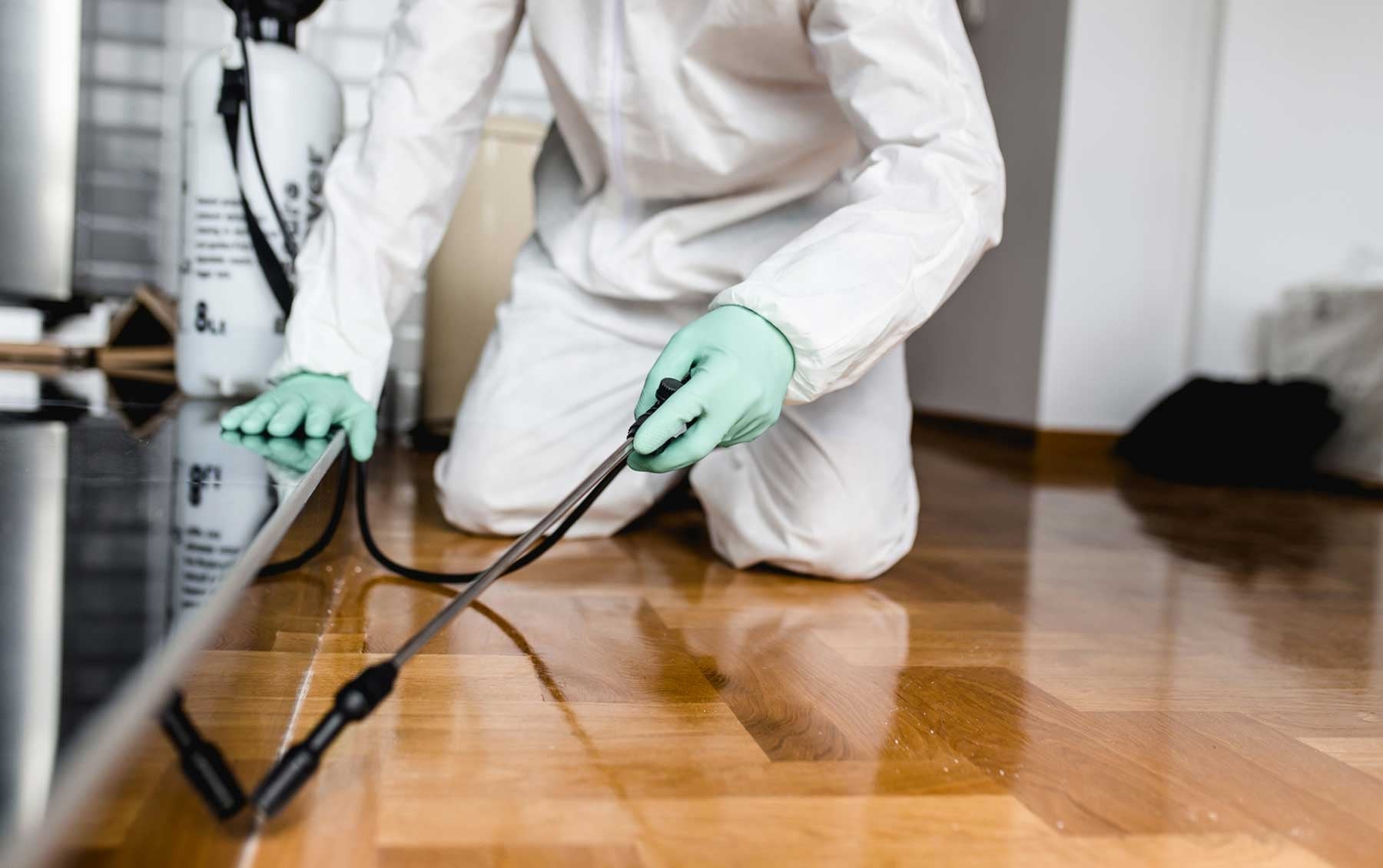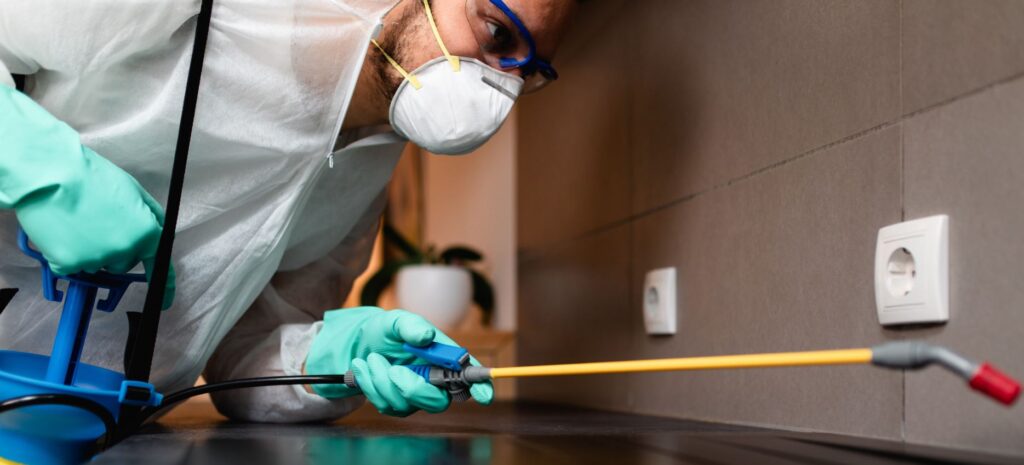Professional Wasp Control Coquitlam: Safe and Efficient Pest Removal
Professional Wasp Control Coquitlam: Safe and Efficient Pest Removal
Blog Article
Safe and Dependable Parasite Control for Lasting Protection
Reliable bug management needs a multifaceted method that balances ecological honesty with the demand for effective insect suppression. The subtleties of these approaches may not be promptly clear, motivating a more detailed exam of the methods that can lead to sustainable pest control end results.
Understanding Insect Control Techniques
Parasite control encompasses a selection of approaches focused on managing and eliminating undesirable bugs and rodents that can intimidate both health and wellness and property. Recognizing these techniques is critical for reliable insect management.
The key classifications of pest control approaches consist of mechanical, biological, and chemical techniques. Mechanical methods entail physical barriers and catches to stop bug entry and capture undesirable species. Utilizing screens on windows or employing sticky catches can significantly minimize parasite populations without presenting hazardous compounds - exterminator coquitlam.

Chemical pest control is commonly one of the most identified method, utilizing chemicals to remove pests. These chemicals can be effective but should be utilized with caution to stay clear of adverse effects on non-target species and the environment.
Benefits of Eco-Friendly Solutions
How can environmentally friendly options change bug control techniques? The fostering of environment-friendly bug control techniques supplies countless advantages, dramatically improving the efficiency and security of insect administration (exterminator coquitlam). These remedies use all-natural active ingredients, reducing the reliance on dangerous chemicals that can position threats to human wellness and the atmosphere. This shift not just secures family pets and families yet likewise reduces the possibility for soil and water contamination.

One more benefit is the favorable influence on local biodiversity. Environment-friendly remedies are designed to target particular bugs while maintaining useful pests and wild animals, promoting a balanced community. This technique straightens with the expanding consumer demand for sustainable practices, improving the track record of parasite control companies.
Integrated Insect Management Strategies
The execution of environmentally friendly remedies normally leads to the adoption of Integrated Insect Administration (IPM) techniques, which even more improve insect control effectiveness. IPM is an all natural technique that integrates numerous techniques to take care of parasite populaces while decreasing ecological effect. This technique emphasizes using organic, cultural, mechanical, and chemical controls, guaranteeing a balanced and sustainable method of insect management.
One basic aspect of IPM is the thorough assessment of bug task and ecological conditions. By keeping an eye on parasite populaces and determining their life process, practitioners can implement targeted treatments that disrupt the bug's habitat or lifecycle, reducing reliance on chemical pesticides. In addition, cultural practices such as plant rotation and habitat control can substantially lessen parasite facility and recreation.
Another critical part is using organic control agents, such as advantageous insects or bacteria, which can naturally suppress pest populations. When chemical applications are needed, IPM prioritizes using low-risk chemicals and uses them precisely, minimizing exposure to non-target microorganisms and people.
Integrating IPM approaches not just enhances parasite control efficiency yet also advertises a safer environment, aligning with the expanding need for sustainable methods in pest administration.
Safe Practices for Home Owners
Comprehending the importance of risk-free techniques in pest control can empower house owners to effectively handle parasite issues while protecting their wellness and the setting. Implementing non-toxic techniques and safety nets is important in decreasing direct exposure to unsafe chemicals.
Homeowners ought to first assess their setting for conditions that attract pests, such as standing clutter, water, and food waste. Regularly cleaning and securing entrance points can deter parasites from attacking the home. Utilizing natural deterrents, such as necessary oils or diatomaceous earth, can provide reliable choices to chemical pesticides.
When chemical treatments are necessary, property owners ought to select items that are particularly labeled as secure for property use. It is important to follow application standards carefully to avoid too much exposure. Additionally, using targeted therapies in areas where pests are determined, rather than covering spraying, can substantially decrease chemical usage.
Lastly, keeping open interaction with insect control specialists is important. House owners must inquire regarding the safety of products made use of and request green choices whenever feasible. By adopting these risk-free techniques, homeowners can produce a much healthier living environment while properly managing bug concerns.

Tips for Long-Term Defense
Developing an insect administration approach that emphasizes long-term security can substantially boost the efficiency of the secure techniques previously talked about. To accomplish this, home owners ought to carry out normal examinations of their home, concentrating on concealed locations such as attic rooms, basements, and crawl areas. Early discovery of bug task is critical in preventing infestations from taking hold.
Additionally, preserving a tidy atmosphere is crucial. This consists of appropriate food storage, immediately cleaning up spills, and routinely taking care of waste. These techniques minimize attractants that attract insects into the home. Securing entrance points, such as splits around home windows and doors, can efficiently obstruct possible insect access.
Landscape design should additionally be taken into consideration; keeping plants cut and preserving a distance in between greenery and the home decreases hiding places for insects. Making use of all-natural deterrents, such as essential oils or useful link diatomaceous planet, can even more inhibit invasions without resorting to extreme chemicals.
Lastly, teaming up with an expert parasite control service for routine examinations can provide an additional layer of safety and security. These specialists can offer customized recommendations and advanced therapies, making sure that your home remains secured versus insects in the lengthy term.
Conclusion
Finally, reputable and secure insect control needs a complex approach that highlights eco-friendly techniques and incorporated bug management. By executing all-natural deterrents, performing normal inspections, and keeping proper sanitation, property proprietors can significantly decrease bug populaces while shielding advantageous bugs and the setting. Cooperation with professional pest control services enhances the effectiveness of these techniques, guaranteeing tailored services that offer enduring security and satisfaction versus future invasions.
Efficient bug monitoring calls for a complex strategy that stabilizes eco-friendly stability with the requirement for efficient insect reductions. The fostering of environment-friendly pest control approaches supplies countless advantages, substantially improving the effectiveness and security of bug administration.The execution of environment-friendly options naturally leads to the adoption of Integrated Pest Monitoring (IPM) techniques, which better improve insect control efficacy. exterminator coquitlam. By monitoring pest populations Check This Out and recognizing their life cycles, experts can implement targeted treatments that interrupt the pest's environment or lifecycle, minimizing reliance on chemical pesticides.In conclusion, termite specialist secure and trustworthy pest control needs a multifaceted strategy that stresses environment-friendly methods and incorporated pest administration
Report this page